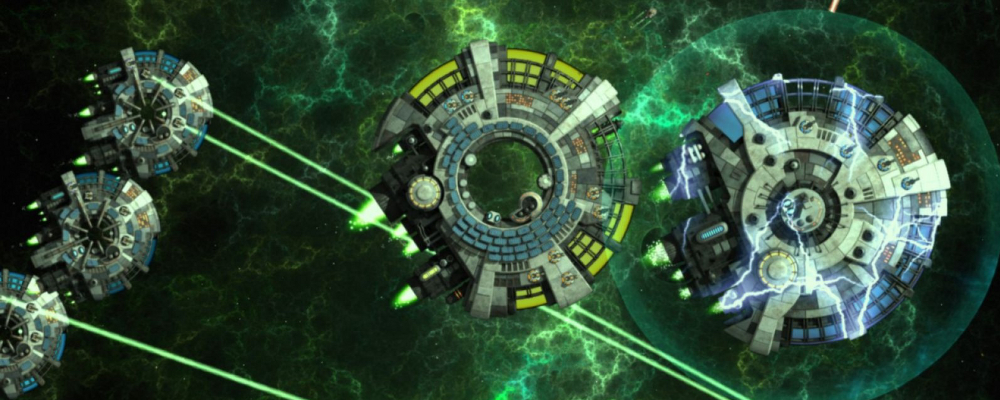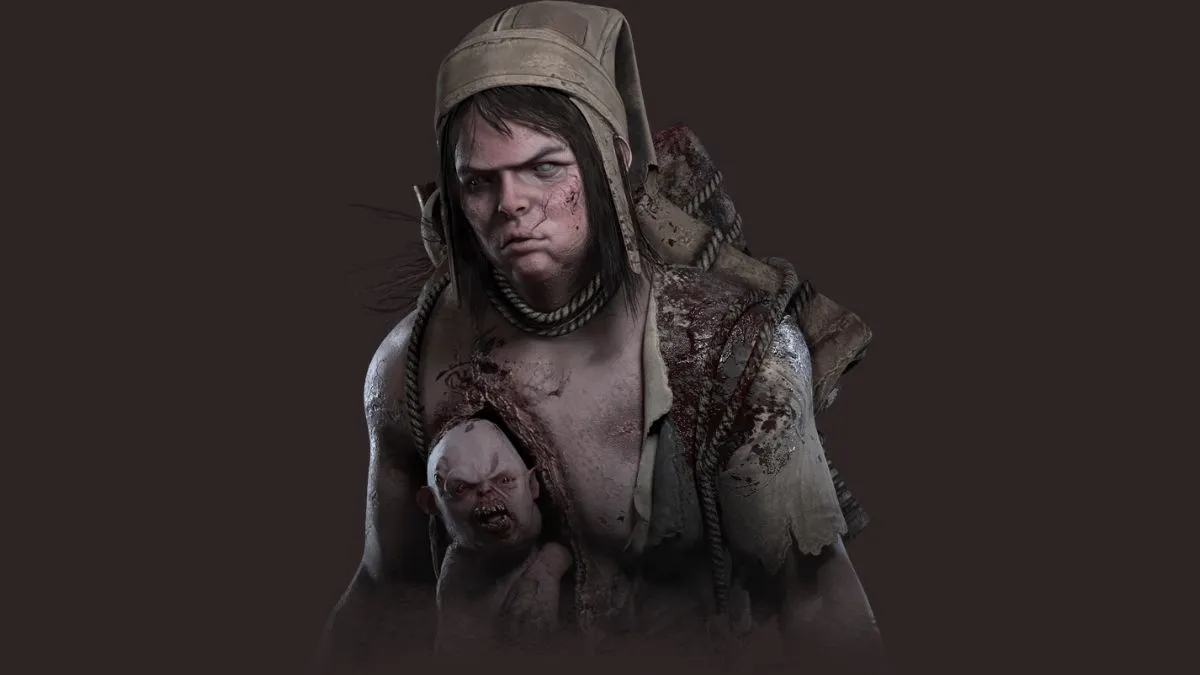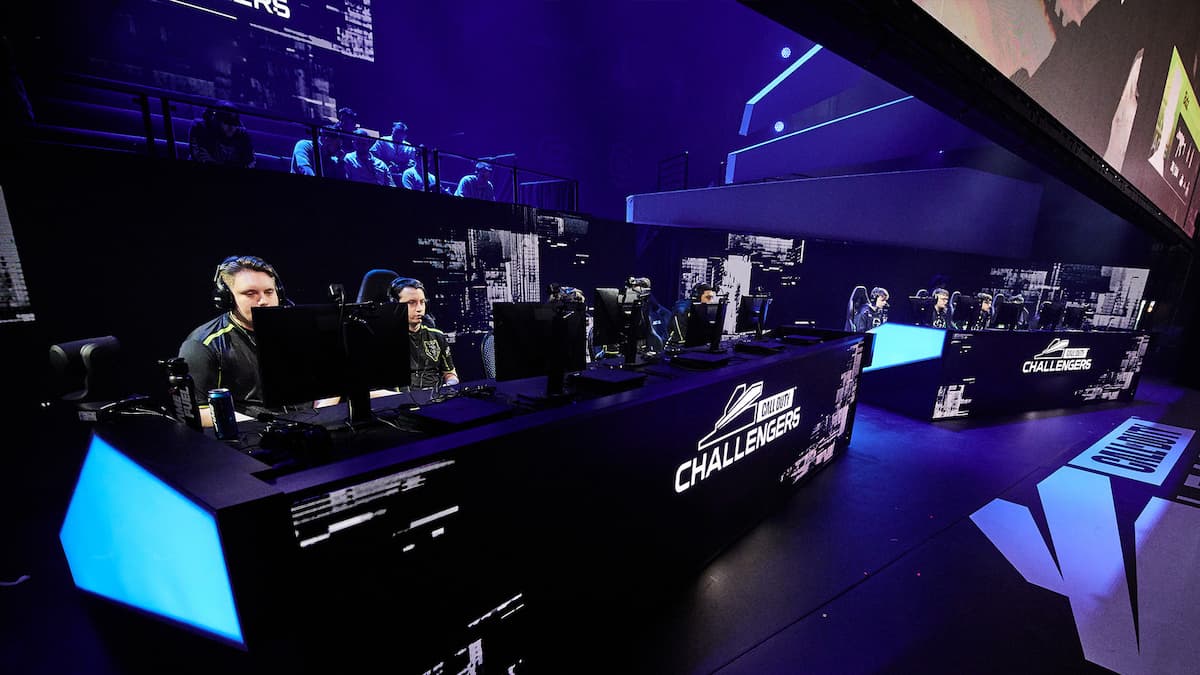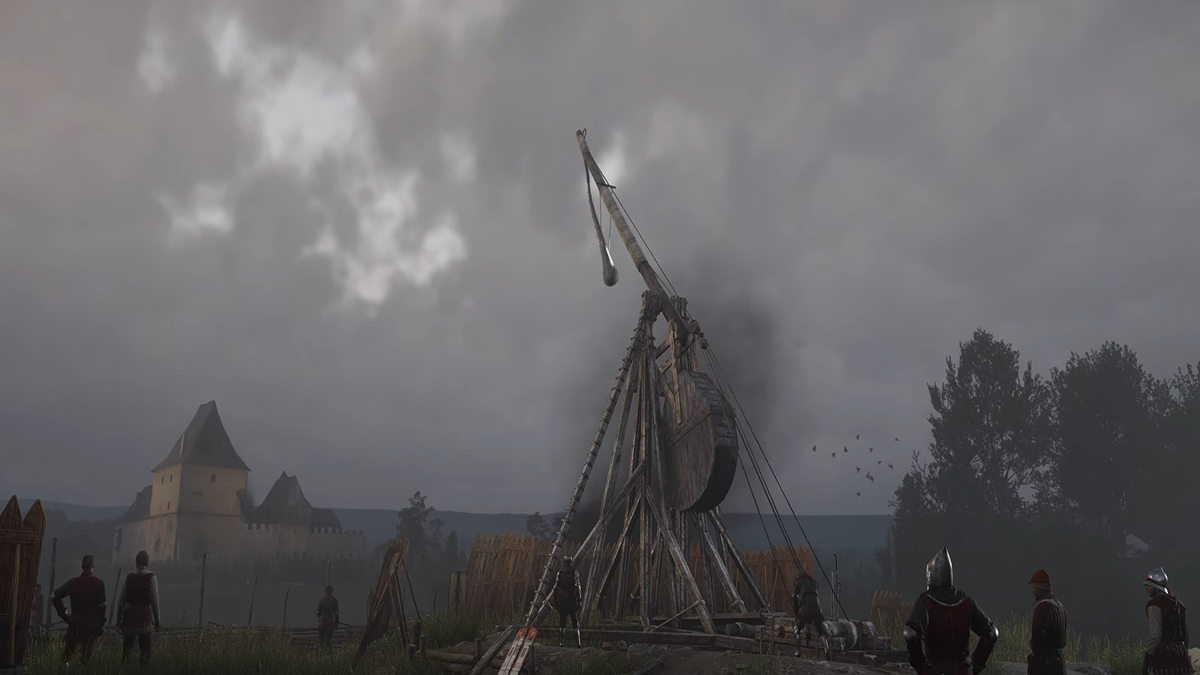Musings on The Outcasts, game development, modders, and Kickstarter
Okay, so maybe I’m playing it fast and loose with the headline. Like most interviews, my conversation with the affable Cliff Harris of Gratuitous Space Battles fame was arranged quite some time before and was most certainly called for — the latest expansion to his popular space strategy title had just launched and he’s an all-round interesting fellow. But it was free, so I’m sticking to my guns. Besides, it’s my interview.
Cliff’s been around the block, more than once, and started off as a struggling indie developer before changing directions and working in studios such as Elixir and Lionhead. In 2005, he came full circle, developing indie titles like Democracy and the aforementioned Gratuitous Space Battles.
His Skype picture has him wielding a bow with an arrow notched, ready to fire. My Skype picture shows me serenading an invisible woman while wearing a hat knitted by some kind of hippy. I was somewhat intimidated.
Thankfully, I quickly discovered that Cliff isn’t the sort of chap who would actually kill a man with a bow for asking a silly question. And that’s good, because I’m a rambler who sometimes even forgets what question he started to ask. It also turned out that I had unplugged my mic and was using my camera’s mic the whole time, giving my voice a delightful distant, tinny quality. So, off to a great start.
Cliff’s last finished project was the seventh expansion to Gratuitous Space Battles, The Outcasts, which adds a new cybernetic race and a slew of additional ship designs, modules, and weapons. It’s a hoot, as I mentioned in my impressions article last week.
Like the core game, the DLC is a mix of different things that Cliff loves about the science-fiction genre, as he explains. “It’s kind of a mash-up of all kinds of sci-fi things that I quite like. It’s partly the Borg from Star Trek, it’s partly the Cybermen (Doctor Who). [It’s] a species becoming sort of more and more meshed with machines over time and being shunned for it.
“I quite like that whole kind of thing, because I’m sure we’re going to end up going that way ourselves. It’s inevitable that some people will have real problems with it, and the whole thing with GSB is that every race has some — to them — perfectly justifiable reason to wipe out everyone else.”
While all the races in GSB have their own unique themes and backstory — and no small amount of character — it all takes a backseat to the detailed planning and the explosive, hands-off space battles. The Outcasts aren’t the most rational bunch, nuking their entire planet from orbit after being shunned by their fleshy, meatbag brethren. But as Cliff points out, “there’s nothing rational about an intergalactic war.”
Despite the loose theme of the Oucasts and their foes, Cliff created the new content more to fill in gaps where he thought the game was missing something. “It’s funny, I’ve always got something in my head about things I’d like to improve about the game and things that are missing. And one of the things that I found when I play the game a lot and test it a lot is that the mid-range ships, the frigates, they don’t last very long. They’re basically laser fodder. So I wanted a race that had slightly better frigates than everyone else, which was one of the aims of it. The general feedback is that’s the case.”

I certainly noticed that my frigates — which had previously often been nothing more than ticking time-bombs — had become more stalwart, though it helped that I’d started to actually give them orders before the battle that actually made sense. It’s advice that Cliff reiterates. “The reason the frigates go up in smoke immediately is because people don’t have a coherent fleet that sticks together… [b]ut if you’re thinking of it like a puzzle, where you’ve got your cruisers and they are supported by the frigates, and the fighters acting like a screen, it all does works, but unfortunately some people don’t go to that trouble.”
Over the space of three years, Gratuitous Space Battles has seen 62 updates and seven expansions, which struck me as a hell of a lot. The Outcasts took around three months to get from concept to finished product, but Cliff doesn’t see that as particularly fast. “I am a bit of a workaholic. I do look at other indie games, and I think ‘why did this take you so many years, what were you doing?’ But I do put in quite a few hours each day. Yeah, that seemed quite a long time to me.”
He didn’t always have a three-year plan, however. He noted that it mainly happened due to the success of the core game. “It’s quite trendy to bash developers that do DLC, there’s a lot of ‘it should all have been in the game’ and it’s laughable — it would have taken forever. No, I didn’t plan… I thought I’d do a game, because I’ve never done DLC before, I’ve done a lot of patches after my games, but not DLC, so I thought I’d do a game and then I’d do some post-release updates, and then I’d immediately have to go on to the next game. That’s the economic reality. But then it took off, sold incredibly well, and went in a Humble Bundle… To be honest, I could do another expansion, and loads of people would like it and buy it. It’s quite surprising, you could probably go on forever.”
Cliff has a good rapport with the community, and since Positech Games is a solo company, he’s always the one updating the forums and communicates with players directly. He admits that some of the community probably know the stats better than he does, and he’s constantly impressed with their passion and enthusiasm.

This had an impact on the DLC, specifically when it came to stats and balance, as he points out. “I get quite a few emails and messages from hardcore players saying that this particular weapon is no good because it’s inferior to this other weapon under these circumstances, and like I said, they know it better than me to some extent. There was quite a bit of that, and quite a few of the stats changed. I still have the same stuff in there that I was going to have, there was nothing that I scraped, but a lot of the ship stats changed massively from how I originally set them up.
“The thing is, when you’re putting loads of stuff together like, it’s very easy to dismiss something stupid. Like you realize you’ve got two ships, and one is just better than the other, and you think ‘how did that happen?’ because you’re always adjusting things to get things right. Things can just get messy. But that was really helpful. I should have always done that really. I was just wary of things dragging on forever and endless flame wars… which can easily happen.”
This level of transparency and communication is in stark contrast to Cliff’s experience at larger development studios like Lionhead and Elixir. “I used to get told off a lot at Lionhead for talking to the community too much. They’d ask a question like ‘will you be able to do this in the game,’ and normally you can’t answer that. But if you’re the guy that coded it, well, yeah you can, I’m looking at the code right now, and I got a bit told off for that.
“But with Positech, because it’s me, there’s nobody to tell me what I can say or can’t say, and if someone suggests something on the forums and I think that’s a good idea then it will happen — as long as it’s feasible. There’s nobody that I have to argue round, whereas with most companies, even with a lot of other indie companies, if there’s two or three of them, you won’t get that sort of discussion and response because they need to agree on whether or not they are going to do that. But here it’s a dictatorship of me, so I can just say yeah, that sounds great, I’ll put that in, or I won’t for whatever reason.”
Modders make up a large part of the GSB community, as is the case with many Positech titles. This is in no small part thanks to the relative ease of modding the base game, as Cliff mentions. “[T]he files are basically text. It’s much easier with Excel, but you can edit a lot of the stuff just in Notepad. That massively reduces the barrier to entry. I think there are loads of people out there who’d love to mod games, but their experience of modding is like stuff like Half-Life and games like that where there’s a software development kit and all this stuff they don’t understand and they don’t want to take the time — quite reasonably, I think — to learn to do that.
“A lot of games… in order to mod them you’ve basically got to be a game developer; in which case you should make your own game, frankly. So there’s all these casual, frustrated modders, and I think they like really GSB because they don’t need to know that much, they can pick it up from the forums, they can look at text bars and see how much damage a plasma beam does, and they just need to do a few key strokes, press save, and run the game.” The mods available are extremely diverse, and run the gamut from simple stat alterations to large-scale overhauls inspired by the likes of Mass Effect and Halo.

Unfortunately, there are occasionally ramifications when it comes to making free mods based on existing IPs, and even more barriers when it comes to commercial ventures, and this is why you won’t be seeing a Bird of Prey in any official GSB updates, which Cliff laments. “When the Star Trek games try to do this they turn out so badly. I’m a huge fan of Star Trek: Deep Space Nine, and there was this game, Dominion Wars…” At this point I couldn’t help but groan. A bloody awful game, have no doubt about. “It was embarrassingly bad, I couldn’t play it and I loved DS9. I’d split the money with them happily to do an official Dominion and Cardassian fleet in the game. But you know it would never happen, and that’s kind of sad.”
The mention of Star Trek games dragged us off on a tangent, discussing the merits and flaws of my favorite vice, MMOs. Star Trek Online can be blamed as the catalyst, as it’s a game I still find myself playing from time to time, and one Cliff attempted to give a shot. “I wanted to like it, and I did try it for a bit. It doesn’t feel like Star Trek, none of these games ever feel like… apart from EVE Online, that gets it, but everything else feels like I’m in a playground with a load of kids… All MMOs are kind of targeting 13-year-old boys, I think, and I think that’s a bit unfortunate. I would love a Star Trek Online game where I could run a bar like Quark’s.”
Not being allowed to run DS9’s infamous Ferengi run bar and casino aside, Cliff also takes issue with the way NPCs often end up being nothing more than static quest dispensers, absent greater purpose or character. He compares the experience to playing Facebook games, and admits that he’d much rather play more EVE Online — which should come as no surprise given the focus of GSB. “EVE Online is very different. I rage quit that game several times over the years, losing a ship at a warp gate and saying, ‘That’s it, I’ve had it with this game’, but I think that’s by far the best MMO ever made. It is stupidly overcomplicated, but it’s a massive achievement. It’s an incredible game.”
I start to realize I could chat away about MMOs and Star Trek all day if I wanted to, but remember that I’m working. Going off on tangents makes me recall a story I’d heard about the origins of GSB — that it had initially been an Earth-bound dictator sim. Master of segues that I am, I ask Cliff how the heck this turned into a strategic space simulator. “All my games change massively,” he explains. “I started work on the dictator game, and I needed a map of your country that you control various bits of. Rebels would show up here, and you’d go and use chemical weapons on their village… that sort of a game. And when I was working on that map, I don’t know what it was, but I just thought it would be better in space. It was a sudden bolt out of the blue, and the more I thought about it the more I naturally started programming a space game, and that would branch into GSB eventually.”

A frustrating experience with a Total War title — he forgets which one — led to him making the battle portions of GSB hands-off. He didn’t feel as in control of the battle as the game made him feel he should be, so he “decided to make a game where that would actually be expected,” hence the style of the space sim’s battle phases. He confesses that “[i]t’s a bit of a torturous route to get from the origins of the game to how it ended up.”
The unusual twists that led to GSB becoming the game that it has become has parallels in how Cliff ended up being an indie game developer. Before becoming an indie developer he had jobs at Maxis, Lionhead, and Elixir, but even before that he’d been making games himself. So this is his second time running an indie business. His early games, such as Planetary Defense and Starship Tycoon, didn’t sell well enough to keep him afloat, but they did help him get a job in the mainstream industry.
“I never thought I’d get a job in the games industry,” he recollects. “I’m 43, I’m slightly older than most indie game developers… I’ve got no degree in computer programming or computer science, and it was very, very difficult, I think, to get into the industry without some sort of formal qualification. So I just kind of naturally assumed that I wouldn’t be able to get a job in the industry, and if I wanted to program games, I’d have to teach myself. I then worked in the industry for about five years, because if you’ve actually finished a game it’s really easy to get a job, especially back then — nobody had finished games, that was rare.
“So you immediately got a job in that case. It was just the default position. And then going from the industry back to going to a full-time indie like I am now, that was mostly frustration with the bureaucracy and the speed that games are made in the mainstream industry… it kind of drove me crazy. And also I wanted to be a designer really, and you don’t get to do that in the industry unless it’s your company… Also, I’m quite opinionated and independent. I didn’t really fit in in the proper industry.”

His strong opinions recently got him some flak after he wrote a blog post criticizing Kickstarter. He recalls that some folk were none too happy about his thoughts on the massive crowd-sourcing platform. “I blogged about this and I got a huge ton of abuse from everybody. I was only saying what I think. I like Kickstarter, and I’m glad Kickstarter exists… and it screws over the big publishers, which is amazing. I’m a big fan of that. I’d never use it. If I needed to, maybe it would be different, but I prefer not to because I don’t know what I’m doing, and I like the freedom to change my mind.”
Cliff still thinks that the platform makes sense for sequels where the concept has already been fleshed out, and the developers know exactly what they need to do and what’s in store for them. One of the biggest issues for him are the reward tiers. “I don’t like that you can name, say, a planet. I’m not George Lucas or anything, but if I name a planet, or a character, or I design a ship, then I do have — without being too pretentious about it — a vision. It makes sense in my head. If you’re letting, not just a random selection of people, but the people who have the most money to spare, to come along and say the planet should actually be called Steve, or whatever, I think that’s a little bit dodgy, because you’re not really getting what the designer wanted. You’re getting what the designer had to compromise over with a group of people.
So it’s unlikely you’ll be seeing Gratuitous Space Battles 2 on Kickstarter, though a sequel is certainly something he’s planning in the future. First, however, he’s working on Democracy 3, and once he’s done with that he’ll have time to figure out GSB2. “I kind of don’t want to commit myself I’ll be able to do this until I’ve done it… in my mind it’s all brilliant. It looks amazing, and works perfectly, but I’m not sure until I try and do it. It will just be better in every way, let’s put it that way. Visually and also in terms of customization… because in the game I did after [GSB], Gratuitous Tank Battles, the tanks look different, with different variants of each one, and you could have camouflage patterns with different colors, and I’d really like do that, but a lot more for GSB.”
You can grab a demo of Gratuitous Space Battles from the Positech site, or pick up The Outcasts DLC from there and Steam.




